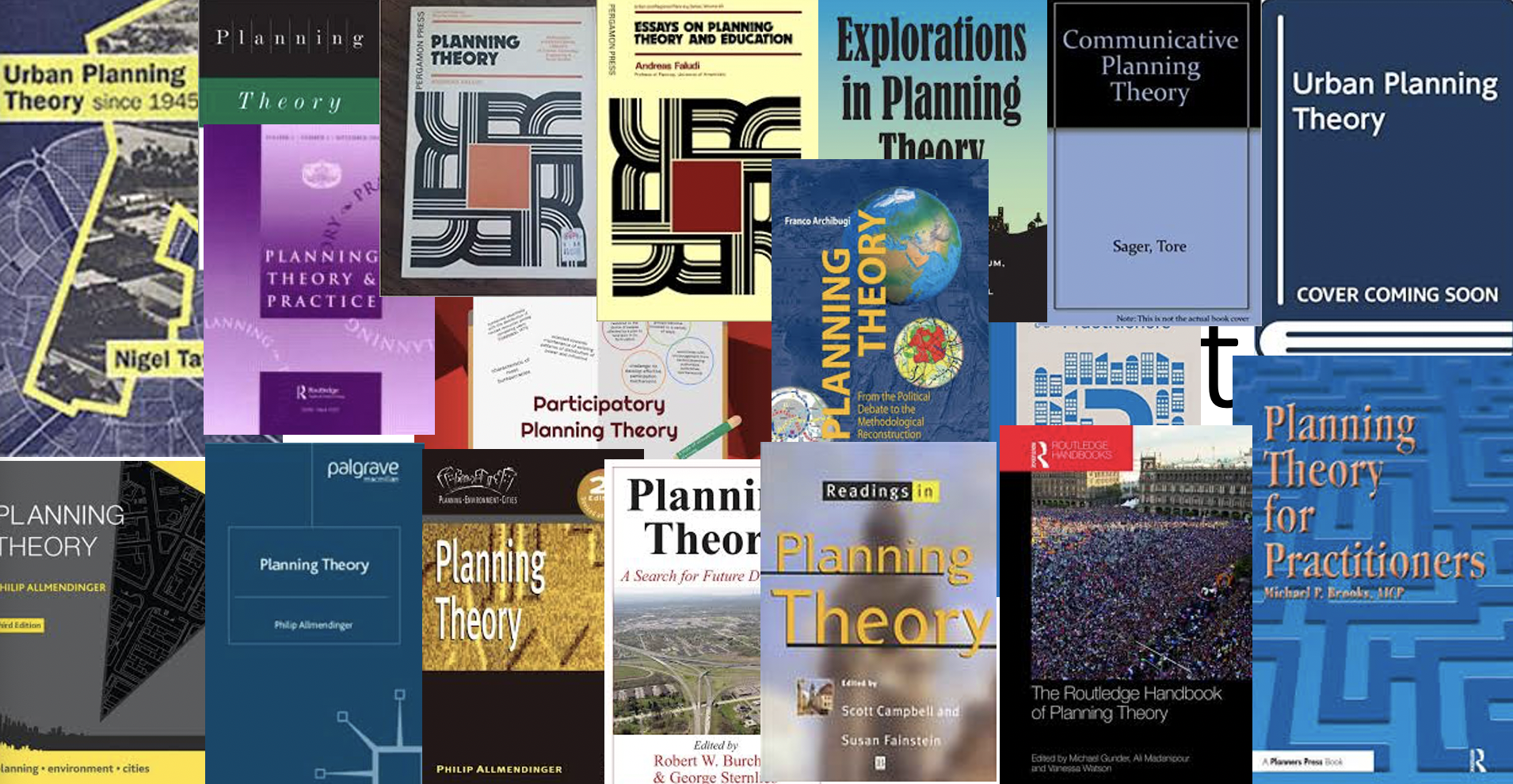ARK-L5003 - Planning Theory D, Lecture, 8.1.2024-19.2.2024
This course space end date is set to 19.02.2024 Search Courses: ARK-L5003
Topic outline
-

The Introduction lecture on 8.1 is held at Ekonominaukio 1/T003. The class is located at Väre building also, but at the premises of School of Business.
Otherwise, the seminar runs in two facilitated groups simultaneously at two adjacent teaching spaces at (Q102 & Q103/ Väre).
Check your group from section (Groups & arrangements).
Planning theory is—as already the name tells us—a research field that studies planning of the built environment, from urban design to spatial planning and urban and regional development. It is not so easy, however, to define what 'studying' means in this context. Planning is a practical discipline, trying to make thebuilt environment a better place or at least safeguard its values. However, planning theory is not simply a theory that planning practitioners follow (like medicine), resulting in a particular kind of environment. Often planners do follow—at least tacitly—one or another theory, such as rational or communicative planning theory. However, planning as a practice is a complex process, and theory cannot offer any simple recipes for practitioners to adopt. In fact we may divide planning theory into four main types, depending on whether they study the object or the process of planning, and whether they are mainly describing this object or process or considering normative issues, i.e. criticising existing planning practices or suggesting alternatives.
In this course, we shall study planning theory as a research field and some of its main schools of thought. More importantly, however, we shall reflect and discuss some of the most frequently addressed general themes in the literature: the role of knowledge and rationality, the relationship between power and citizen participation, the differences between blueprints and strategic planning, the meaning of culture and art, the meanings of place and space, and the role of humanism and post-humanism.
We shall study in weekly seminars of three hours in the Monday mornings throughout the 3rd period (08.1.-19.2.) on site. Please note that there are two adjacent teaching spaces booked for the seminar. The reason is that two teachers can run two simulations sessions for a better interactive learning environment and enabling more time for discussion. You are divided into pairs, studying a given topic and a relevant article, presenting the findings to other students. These presentations are also submitted to MyCourses into the return box. Additionally, groups will choose a planning case and analyse it with the theoretical concepts learned during the course. These will be presented on the 20th February. After the seminars, you will write individually an academic essay on a chosen subject in planning theory. The topics of the case studies and the essays should be agreed beforehand with the teachers.
There will be a table of the dates and topics of presentation by the Sisu registration end.
Teacher:
Kaisa Schmidt-Thomé, Docent Dr.Sc. in Land Use Planning & Lic.Phil. in Planning Geography, kaisa.schmidt-thome@demoshelsinki.fi
Hossam Hewidy, Senior University Lecturer Dr.Sc. in Architecture and Urbanism (responsible teacher).
